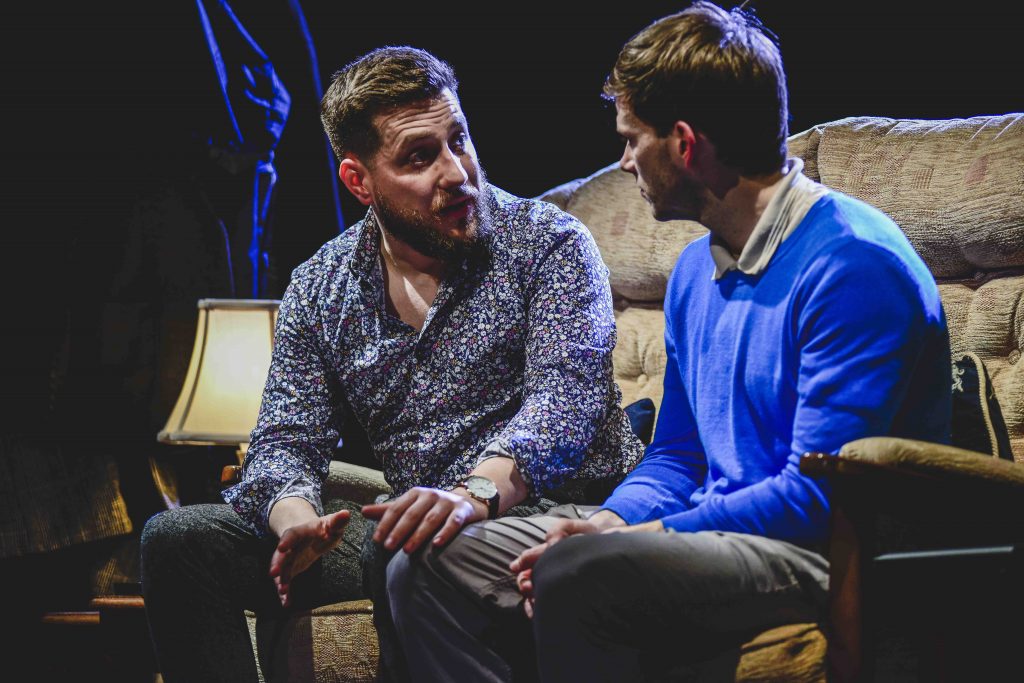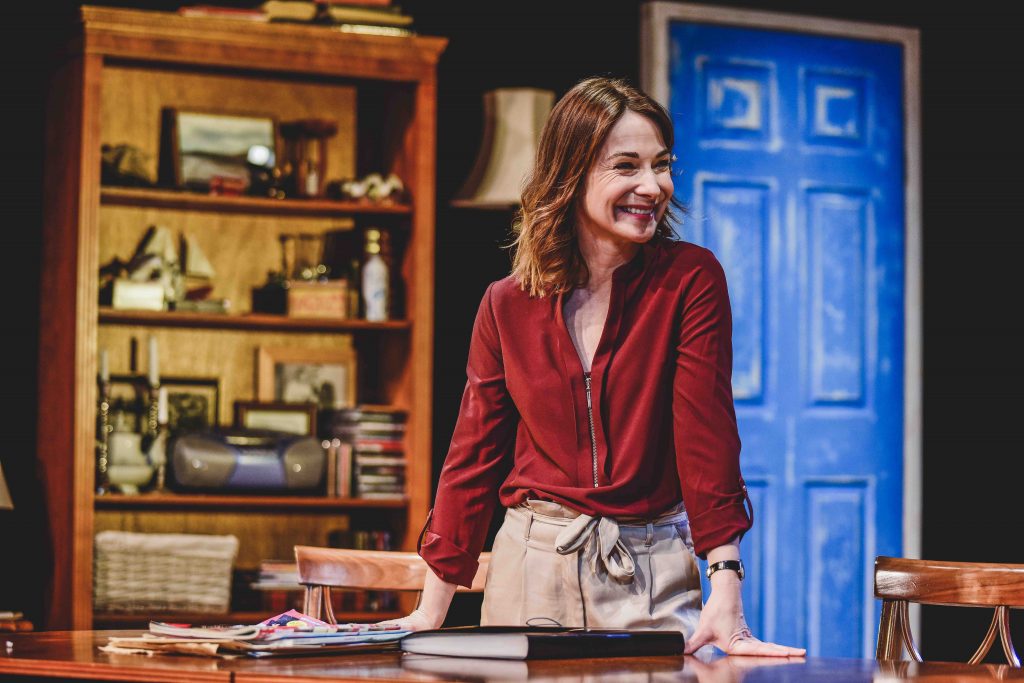If a debut is an indicator of a playwright’s potential, then Rhys Warrington, here bringing to the stage his first feature-length work with Chippy Lane Productions, is poised to make some ripples in the Welsh theatre scene. BLUE is a strong, poignant work, supported by a lucid insight on human behaviour, a writing that is empathetic without becoming didascalic, and a series of careful, detailed character studies.
The relative length of the production might pose an additional challenge, but BLUE navigates it carefully and manages to keep the narrative tension throughout; there are no slumps in its flow, and even when quarrels between characters appear to drag for slightly too long, this is in truth a reasoned narrative choice, justified by the situation and well handled by the cast. The play is also clever in its construction; starting on an easy-going, almost comedy-like tone, it slowly, gradually reveals its depth, as the audience gets to know its characters and cracks start showing in the picture of family life that is introduced at the beginning.
When the true depth of the unspoken truth that has been hovering over the stage throughout the play is at last revealed, it comes in a sense expected, as suspicion has been built through a myriad of clever hints, and yet it still retains a sense of secret unveiled. The narrative device of Chekhov’s gun is employed twice – at least two things set up at the beginning are clearly expected to precipitate – but when the gun fire, it does not so as it would have been predicted. The writing has a clever way of playing with subtexts and expectations, and it does so on the strength of its characters, which come across as human, complex, and credible.
Jordan Bernarde and Gwydion Rhys
BLUE does not shy away from engaging with difficult themes, and it does so without pre-conceived ideas and without leaning into easy stereotypes. It explores the most difficult kind of grief, the one that comes with a person that is lost but not dead, that can trap those who are left behind in a limbo where they can neither go back to normality nor move forward to closure. This sense of being trapped is well conveyed by all performances, but particularly noteworthy is Nia Roberts as Lisa Williams, who carries on her shoulders perhaps the most nuanced and difficult performance in this regard, and does it with ease and realism. It is also pleasant to see BLUE join the number of recent plays that are interested in unpacking non-conventional ideas of masculinity, and the constraints that are placed on men who don’t quite fit the conventional mold. As I have written before, this is a theme of extreme relevance in our contemporary society, and yet one that has not received the same attention as dangerous constraints on womanhood have. To see this work engage with it in such a thoughtful, intelligent fashion, both through the characters of Huw (played with a range of soft notes by an excellent Gwydion Rhys, bringing to the stage the shy boy we all might have known or been) and Thomas (Jordan Bernarde, an interesting, clever male character, combining sensitivity and self-assurance). Sophie Melville as Elin provides an upbeat counterpoint to the two male characters, and a sharp portrayal of the internal tensions felt by many in the younger generations, forced to make difficult choices in order to ensure that they have a viable future.
Nia Roberts
It is an interesting narrative device to plunge Thomas’ character into the constrained space, almost a closed box – the door, not by chance, is always locked – of the Williams family living-room, dense with unspoken tensions and unmentioned pain. The abrupt appearance of this external observer and involuntary interloper is the spark fuelling the progression of the plot, and at the same time provides the audience with an external point of view they can adopt as their own, drawing them further into the story. Thomas’ appearance on stage and in the life of the Williams family is disruptive in the most positive way – aptly suggesting that sometimes an external approach may be what is needed to break a situation of frustrating, painful stagnation.
With characters that seem familiar and situations that, however painful, are known to us as a part of the real world that might at some point touch us all, BLUE tactfully explores themes that can prove rather hard to navigate, with more interesting in understanding its characters than in providing solutions, and without ever entirely losing its light-handed, charming sense of humour. It is not a perfect work, but a work telling this story could not, and perhaps should not, ever be perfect.
Until February 16
Images: Kirsten McTernan


So pleased for Rhys Warrington, a very talented actor and writer.